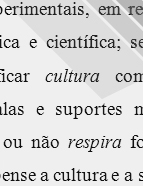

................................
In the case of the latter, following the great humanist repositories of the 16th century, De Auctoribus Scientorum or Bibliotheca Universalis, an erudite inventory was also created in the 17th century, and ad usum delphini, of Portuguese writers in the context of the claim of historical (materialised in Monarchia Lusitana), political and cultural autonomy, against the Philips, a plan a century later translated by Barbosa Machado in the Bibliotheca Lusitana (1741-58), a collection "of all the sciences cultivated by Portuguese geniuses" and a "Literary Theatre" of their "greatest figures." The author confirms failed or vanished previous attempts by F. Galvão de Mendanha, M. Severim de Faria, M. de Faria e Sousa, F. Manuel de Melo, J. Soares de Brito, and A. Caetano de Sousa. This inventory was expanded, updated, and corrected in the mid-19th century in the Dicionário Bibliográfico Português [Portuguese Bibliographical Dictionary] by Inocêncio F. da Silva, completed by Brito Aranha, as the grammatical movement (still conceived in the manner of Aristotelian taxonomy) and the repositories sharpened the literate consciousness of cultural belonging. Public instruction projects timidly emerged in a country where, even in 1900, illiteracy was around 80%. Meanwhile, autonomous collections and the História e Memórias da Academia Real das Ciências [History and Memories of the Royal Academy of Sciences] (1st series, 1779-1839), especially Memórias da Literatura [Memories of Literature], explored the history of literature, linguistics, and law (Torgal, Mendes & Catroga, História da história em Portugal [History of history in Portugal], 1996, pp. 29-31), investigating and strengthening relevant links and peripheral chains of semantic jurisdiction to a culture literally created in and by literate centres. The significant systematic effort is owed less to The True Method of Studying (1746) by Luís António Verney, complemented in Apparatus and translated by Teodoro de Almeida in Philosophical Recreation and the Cartas sobre a Educação da Mocidade [Letters on the Education of Youth] by Ribeiro Sanches, but rather through a profound teaching reform project, to clarify if not institute a matrix of Portuguese culture and methodise its unequal productions, at the same time, as noted by Sérgio (Ensaios [Essays], VII, 1954), sowing a "civic apostolate." It is known how the unrelenting ideological struggle between the Oratorians and Jesuits was established throughout the 17th-18th centuries, influenced by Cartesian rationalism (or even later by Newtonian physics) fought by the Thomistic Aristotelianism of the Coimbra course, a peripatetic philosophy taught by the Society in the Arts colleges and its own.
